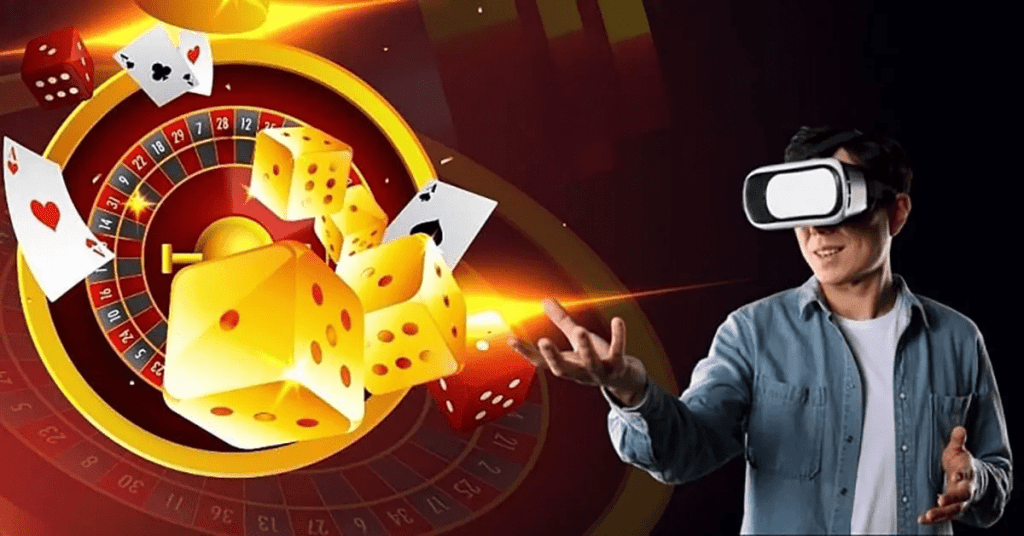Many people discover new ways to bet online every day. They often enjoy roulette for its simple spins, and a few search for fresh experiences in arab casinos that offer cultural twists. Later, they go back to dafabet casino if they want a different array of choices. Some also explore gambling in bahrain events with friends. They might try casino sites for unique promotions, then jump into free spins on popular slots. Now and then, they return to roulette for that timeless rush of energy. Yet others keep their eyes open for more diversity in arab casinos to see if they can find the latest games. Then, they swing over to dafabet casino again to see if it matches their needs. By mixing classic table games with modern opportunities, players seek fun and convenience. This shift leads many to wonder about the role of virtual reality in online gambling. They might ask if VR can bring a deeper gaming experience.
How VR Enhances the Online Casino Scene
Virtual reality places players at the center of a lively betting floor. Instead of staring at a flat screen, they wear special headsets that immerse them in 3D surroundings. Bright lights, dynamic tables, and other players’ avatars come together, forming a realistic environment. This style aims to mimic the thrills of a land-based casino from the comfort of home. For many people, the joy lies in feeling present as they shuffle chips or spin a digital slot reel. They can walk through a virtual lobby, greet fellow gamblers, and even interact with dealers in real time. These features help foster a sense of connection and excitement. They also breathe new life into old favorites, since virtual poker or baccarat can appear more interactive. While some platforms are in early testing, interest in VR content continues to rise. Few players can deny the rush of stepping into a virtual hall where the action feels genuine. Every spin seems more vibrant now.
The Technology and Its Hurdles
Though VR gambling promises excitement, it also has hurdles. First, headsets can be costly, leaving some players unable to join. Users also need powerful devices to handle 3D software, which may add expenses. Connection stability matters, too. A glitch can interrupt a crucial hand of blackjack or cause missed bets. Moreover, developers must craft games that look appealing and run smoothly. Many gamblers still prefer simpler options, so VR content might feel too intense. There is also the question of space. Some setups require extra room for safe movement. Social comfort can be another concern. Wearing a headset could feel odd or isolating, especially during group play. Plus, not everyone wants to appear in an avatar, so they stick to standard screen formats. Despite these concerns, technology continues to move forward. Each year, VR gear becomes more affordable and user-friendly, hinting that these issues might fade as progress continues in the future. Even so, many believe VR will keep growing.
What the Players Stand to Gain
Players can enjoy a richer sense of presence when they slip on VR headsets. They might peek around the virtual space, watch dealers shuffle cards in 3D, or size up the competition. Some games even allow voice chat, making it simpler to share tips or lighthearted banter. In these settings, body language can matter. Avatars mimic small movements, creating a shared experience that goes beyond typing in a chat window. This added realism can help bring respect and fairness to each round, since players feel more connected. VR can liven up slots, too. Themes come alive as reels spin in a themed setting, complete with sounds and visuals that match. For new bettors, VR tutorials might feel more hands-on and fun to explore. There is also a social element, where folks can form teams, join tournaments, and cheer each other on. Such features keep players engaged for longer stretches, adding new layers of excitement. This approach can spark lasting interest.
Looking Ahead to VR’s Role in Gambling
Experts see VR becoming more common as technology advances and costs drop. The idea of stepping into a simulated environment, greeting virtual dealers, and reading other players’ body language might drive more people to try VR gambling. Operators could add new game types, from skill-based events to story-driven adventures, all in immersive worlds. This approach might blur boundaries between gaming and entertainment, drawing casual audiences and longtime enthusiasts alike. With improved internet speeds and greater device support, VR sessions could run smoother, making the experience more realistic. Developers might also find clever ways to track gestures or facial cues, helping build trust among players. For some, VR is a chance to recreate the thrill of a real casino, even if they live far away. Others hope for unique titles that harness creative design. While it might take time for VR gambling to become mainstream, the path seems clear: Virtual reality shows strong potential for the online gambling world. Enthusiasm builds.
















0 comments